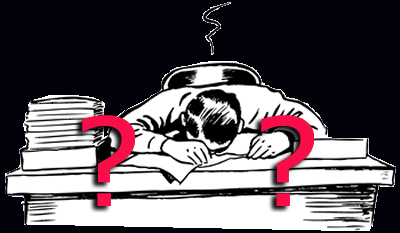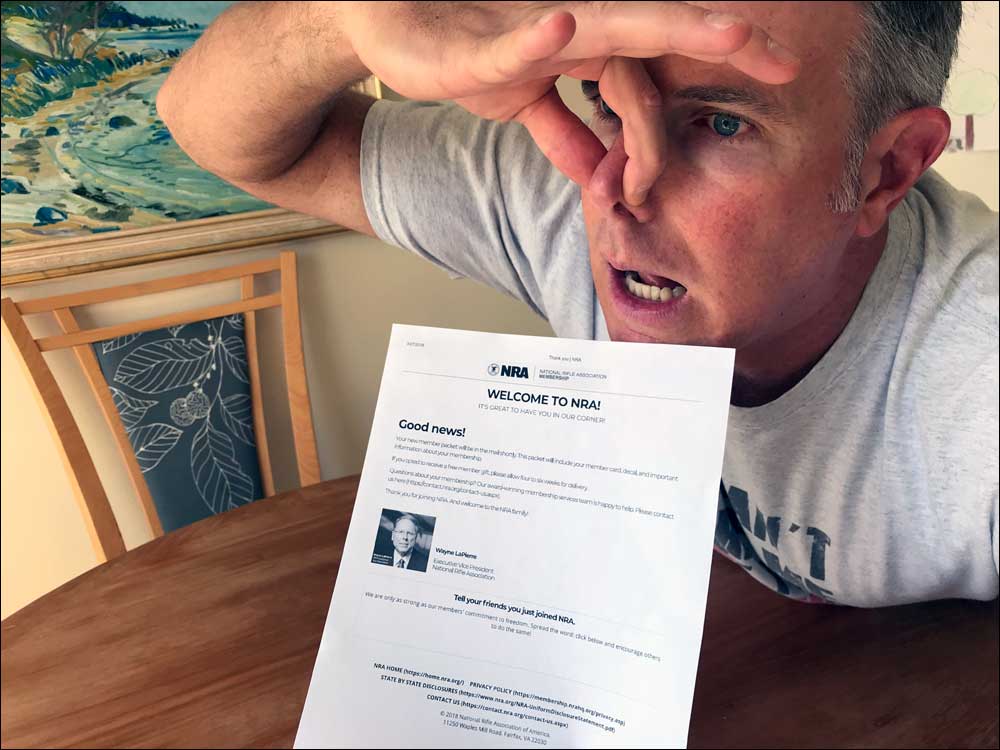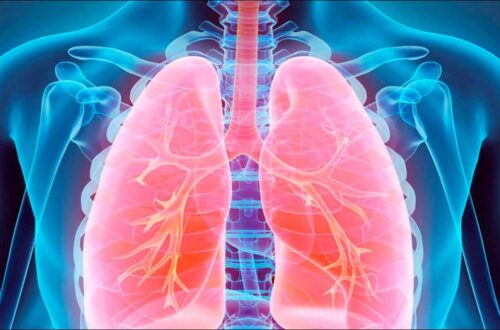“More men are killed by overwork than the importance of the world justifies.”
Rudyard Kipling
——————
In talking last week with a childhood friend who now lives in North Carolina, a yawning depression overcame me as he described his typical workday — it sounded exactly like mine:
“I work steadily right through lunch and maybe grab a snack somewhere and eat it off quickly at my desk. In the afternoon, I go to the vending machines and buy a Coke when I should be drinking water – and that is all I have until dinner when I get home at night.”
The same thing happens with me.
By the end of the day we feel physically horrible, of course. Having barely eaten and feeling drained by 8+ hours of total absorption in work, we are so exhausted by the time we arrive home that exercising seems improbable if not impossible. We go to sleep and then do it again the next day; the days and months – well, “the years shall run like rabbits.”
And each year seems to pass by more speedily than the previous.
We did not work like this when we were 25, nor would we have been willing. We didn’t work like this when we were 30, either. But little by little through the 30s and towards 40, work and careers assumed a greater proportion of our time and energy. We are better at it. We have better work, and more of it. But time and energy being limited, other parts of our lives suffer. There is only so much time in the day.
The easiest parts of one’s life to cut out are exercise and hobbies. But without exercise our health suffers and we just feel “bad.” Without the cultivation of one’s self in hobbies and intellectual/spiritual pursuits, one’s interior life flattens and suffers. But physical exercise and a vibrant interior life require time and energy, and that is precisely and increasingly what we do not have. The time period between talking even with good friends lengthens. I see my father, brother, and sister only during holidays and summer. Recently Pope Benedict XVI echoed the words of 12th century Saint Bernard of Clairvaux about overwork: “…watch out for the dangers of an excessive activity, whatever… the job that you hold, because many jobs often lead to the ‘hardening of the heart’, as well as ‘suffering of the spirit, loss of intelligence.'” Is this not true?
But on the cusp of turning 40 with young children and mortgages, is this just the stage of life we are in? Are these the productive “career building years” which all endure? There are, after all, plenty of persons who have as much of a different sort of stress that comes from being underemployed and not having enough money for oneself and one’s family. Perhaps this financial pain is a worse stressor than the feeling of over-commitment we currently endure – like too little butter spread out over too much bread. As Henry Ward Beecher claimed, “It is not work that kills men; it is worry. Worry is rust upon the blade.” I do not lie awake in bed at night worrying about unpaid bills, thankfully. I live within my means and always have money in the bank.
On the other hand, I often get too little sleep because I work late into the night. I am nearly always tired; I am almost never well rested. It seems any fifteen minutes without obligations in the afternoon means I fall almost instantly asleep wherever I am. It has been like this for more than a few years. Perhaps I am older and have less energy than in the past, but I also know I work much harder and longer. For example, I not only work a full time high school teaching position in the day, but I work as an adjunct professor one evening afterwards one evening per week. There have been times I have had headaches for two or more days straight after these 16 hour work days. I know it is related to stress and overwork. The muscles in my back and neck are taut the morning after a 16-hour work day, and last October my back completely went out after I did nothing more extreme than to bend over to tie my shoes: I felt the sharp pinch in the muscles of the lower back, and I knew immediately what had happened. Despite popping Ibuprofen as if it were candy all morning, by that afternoon I could barely walk or get out of bed without help. I could hardly work at all. My body registered the stress most directly.
The breakdown comes from too much work, as my body does not resist the use and overuse as well as it once did. We might abuse our bodies when young, but it catches up over time: I now know this deep in my “muscle memory.”
Why would I let this happen? Do I do it for the money? The prestige? To help others? All of the above?
Maybe it is like the situation with the frog. If you stick a frog directly into boiling water, it will jump out to safety. If you stick a frog into warm water and then slowly heat it to a boil, it will do nothing and allow itself to be cooked to death little by little.
Are Brent and I just another couple of working fathers approaching midlife scrambling to try and cover all the bases? Brent is a ladder climber in corporate America, seeking to compete against his peers. I am a public high school teacher, worked like a mule. Are we hardworking American members of the middle class that keeps this country going? Or are we “chumps” being worked into an early grave?
Is it possible to be a productive and standout worker without it affecting your health?
I used to have hobbies, interests, and passions. I now have little time for those. I used to live in large part for myself and the cultivation of the self. I had time to think and reflect. I now have so many responsibilities to others that I have little time for myself.
And is this happening at precisely the time of our lives when abusing our physical health has more consequences? A person can work seventy hours per week in one’s thirties, but as one approaches middle age the body will break down. One cannot endure it like in the past. Chronic ill treatment of the health begins to have real consequences.
The working of oneself to death is an absolute possibility. It happens everyday.
Is this just what being a “mature adult” means? Embracing a deep bout of depression over the status of one’s life seems more and more like a self-indulgence that I cannot afford. Worrying terribly much about one’s appearance or weight, as in youth, appears juvenile.
Maybe I am spoiled in expecting too much from life? The medieval French serf, or even the 19th century American farmer, had much harder lives. They worked day after day of backbreaking physical labor in the fields year after year until the body failed and death arrived: much of the world lives thusly even today. Workers in Andrew Carnegie’s steel factories worked 12-hour shifts in the superheated coal furnaces seven days a week – dangerous and exhausting work. Comparatively speaking, I have it good.
On the other hand, there are many Americans at my level of education with similar skills who work fewer hours, get paid more, and do so in much better working conditions than me. Why don’t I make a rational decision in my self-interest and join them?
The bottom line: I need to modulate the needs of work versus the needs of home. Among those with whom I grew up, I know of no other more pressing issue than this complicated balancing act between career and self.
It is a complex mix of commitment to various actors. My wife depends on me as a partner and mate. My soon-to-be-born daughter, Julia Emerson, will depend on myself and my wife for almost everything. My Advanced Placement students depend on me, with high stakes end of year AP exams and college entrance competition bearing down on them. There are lots of them (167 of them, to be exact), and only one of me. Last June in San Antonio grading AP US History Exams, I came across one answer to a prompt on 1950s consensus and conformity where I was expecting several pages of writing I encountered no more than this one sentence answer: “My teacher went out on maternity leave in February, and we did not learn anything for the rest of the year with substitutes. I know nothing about American history after 1900. Sorry. I really am smarter than this pathetic answer indicates.” I do not doubt this student was telling the truth. That teacher’s commitment to her newborn infant meant, in practice, that her students were unprepared and (may of them, if not all) tanked this important end of year exam. I have little loyalty to my employer or to the public school system. But I would rather bite off my arm than to let my students down: there are the cast iron links of affection and commitment that never lessen between teacher and student. Then there is my wife, whom I love more than life itself. There is my precious unborn child, Julia, for whom words fail me.
They always tell parents at the beginning of flights that if the aircraft becomes decompressurized, they should take oxygen themselves before they give it to their children. If a parent fails to attend to their own necessities and falls unconscious, their children will surely perish, too. Part of an adult commitment to one’s wife, children, and student is to take care of oneself. Single men may indulge in destructive behavior, knowing they hurt only themselves. For married men with children, the land lies differently. I am sure statistics somewhere illuminate that married men live longer than do the unmarried. Most immigrant communities become stable only when their womenfolk arrive and the men marry and children are produced. Family is the glue of society, conventional wisdom claims, and a man becomes truly an adult only when he marries and has children.
But with respect to that student whose teacher went out on maternity leave: Does becoming a teacher mean you cannot have children? Where does one’s commitment to others end and the need to take care of oneself start? Brian Tracy claims, “The biggest mistake we could ever make in our lives is to think we work for anybody but ourselves.” Is it quite that simple?
And I am much to fault in my work? Have I allowed myself to be put in this position? Was I a willing accomplice to the crime? The employer will allow you to take exactly as much work on as you will allow: Are you good at your job? Would you like more responsibility and challenge? More money? Sure! Here it is! It will be on your desk by noon. Good luck! As a beginning teacher in a ghetto middle school, I thought what perfect bliss it must be to teach Advanced Placement classes in a strong suburban high school. It seemed almost the best possible job within the pubic school system, and I looked at this better future as a way of making bearable the unbearable in the inner city. I grasped at it the way a drowning man reaches for a life jacket. Sitting there in that downtown Los Angeles classroom, I knew I was cut out for more in life than this. So I earned my way to that coveted AP teaching position, and I was so proud to arrive at the pinnacle of the system – to be on the “A team.” It took me nine long years of hard work to get there.
But prayers answered perhaps give us more tears than prayers spurned, as the workload is intense in AP classes. I sometimes fantasize about escaping it to a less stressful assignment. I could take things a bit easier. I could have some of my evenings free from grading. On the other hand, I do like the intellectual stimulation of being with the best students. It would be a big step down. What a joy to spend my days with the talented and the ambitious! What a letdown it would be to teach literature to those who dislike literature and history to those indifferent about history.
But the workload! The piles and piles of essays to be graded. The students whom when asked to write two pages write three. The stress to cover so much material so quickly and without cutting any corners. The pressure of teaching writing to young writers who dream of one day becoming famous authors. The stress of teaching history to intelligent young adults who live to learn history. It requires almost my entire attention almost all the time. No short cuts: it is all or nothing.
On the other hand, I have some difficult, unpleasant students even in AP courses; and I have had some diamonds in the rough in lower-level classes. On the other hand, to pretend there is not a genuine different between the two sorts of classes is to be disingenuous. My boss prefers the current state of affairs: high pass rates on AP exams, few complaints from parents, and smooth sailing ahead. But what is in his interest is not necessarily in my interest or in that my family.
All is complicated and ambiguous.
Yet if nothing changes I can clearly see twenty years more of the present ahead of me. How do I feel about myself doing this until I am sixty? Mixed feelings. The public school system is not worth it. My students clearly are worth it.
We spend so much of our lives at work. Years spent in the workplace will weigh so heavily in the calculus of life’s happiness.
Clearly, I will have to watch out for myself, as nobody else will. No employer I have ever known expressed much concern about my home or spiritual life. Nobody has ever asked about my physical or emotional health. They were just happy to have a job well done, with effusive praise – with another pile of work and boatload of students waiting for me next year. I have rarely seen anyone’s work load reduce with age – just the opposite.
Until retirement. Or death.
Often they happen almost at the same time.
THE CHOICE
W.B. Yeats
The intellect of man is forced to choose
Perfection of the life, or of the work,
And if it take the second must refuse
A heavenly mansion, raging in the dark.
When all that story’s finished, what’s the news?
In luck or out the toil has left its mark:
That old perplexity an empty purse,
Or the day’s vanity, the night’s remorse.

“I believe in work, hard work, and long hours of work. Men do not breakdown from overwork, but from worry and dissipation.”
Charles Evan Hughes




One Comment
Magali Nelson
Mr Geib,
The other eve I found your site as I googled the words Iran-Contra affair.
Once in there I was glad to read your comments about Oliver North.I also read your comments about Unamuno and other people you admire. I see that you have studied political sciences and much history, plus know Spanish very well. I am not into politics and I am not an argumentative person either. I am sort of a quiet person who have a lot to learn yet. I just wish I could understand some of the reasons why the USA has backed up the selfish leaders of other countries in the name of democracy. In particular, I met years ago some refugees from countries like El Salvador and these people had no interest in communism at all. They had only tried to organize an agrocoop for the survival of their children.For this that family was hunted down and almost killed.But
b/c the USA had to keep the world free from communism, oppresed people trying to survived were killed and tortured by forces trained by our military. You may be able to help me understand this
b/c so far I do not. Thanks,
M.Nelson